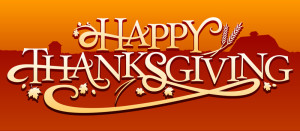I tend to be a stubborn person. When I think I have the right answer, or have a certain strategy planned out, it takes a lot of effort to get me to budge. But when I don’t have an answer, and have no idea which way to turn, I am all ears for suggestions and guidance. I ask those I love and respect what they would do and what they think I should do. Ultimately, I lay my own path, but it helps to know how others would handle something or have handled something before I make my move.
I’ve mostly gone to my father for advice. I consider him wise, knowledgeable of the world, caring, and kind. He is both ethical and moral, and not to mention understanding. In a lot of situations, Dad’s got the answer.
Except when it comes to becoming an author for the simple reason that he is not an author.
In most cultural pasts, apprenticeships were the chosen method of learning a specific craft. With the steady and knowledgeable hand of an expert, a young apprentice learned the skill by spending all day in the shadow of his mentor. Now, a more equatable term would be internship, although the learning is not quite as exhaustive (and “apprenticeship” sounds a bit more shiny, doesn’t it?).
When learning a specific craft now, we have a few options. We go to college or a trade school, intensive seminars, or procure an internship position. Or, we might be blessed with a gift from the heavens: a mentor.
A mentor is someone who has great knowledge of a specific item or skill and has accepted the responsibility of passing that information on (hopefully to you). Some famous mentor/mentoree relationships of note include: Mahatma Gandhi mentor to Dr. Martin Luther King, Jr. and Nelson Mandela; Ralph Waldo Emerson mentor to Henry David Thoreau; and probably the most famous, Socrates mentor to Plato. Some mentors have already passed, and their writings are used as a means to mentor others. One of my favorite accounts of a mentor/mentoree relationship is captured in the book Letters to a Young Poet by Rainer Maria Rilke. I highly recommend this book to everyone.
The best part of having a mentor, for me at least, is that I have someone in my life who is living the life that I want to eventually live. They have put in the hard work, and it is a truly inspiring thing to see. I met my mentor at Superstars Writing Seminar, knowing I needed a mentor but wasn’t actively seeking someone out for the role. Fate delivered (Thanks, fate!), and I met and connected with one of the instructors. He is not only my mentor in writing, but he is a best friend, a confidant, and someone with whom I look forward to sharing my successes, my failures, and my hopes and dreams.
There is a caveat. Oh yes, always a caveat. A mentor can only guide you and tell you where he or she has been. A mentor cannot tell you exactly what you need to do and where you need to go (that’s a dictator). While this is the caveat, let it also be your comfort. Your journey will not look like your mentor’s. There are many roads to success, and yours will not look like anyone else’s. However, it sure is nice having someone holding your hand along with way, giving advice and care when you need it most.

